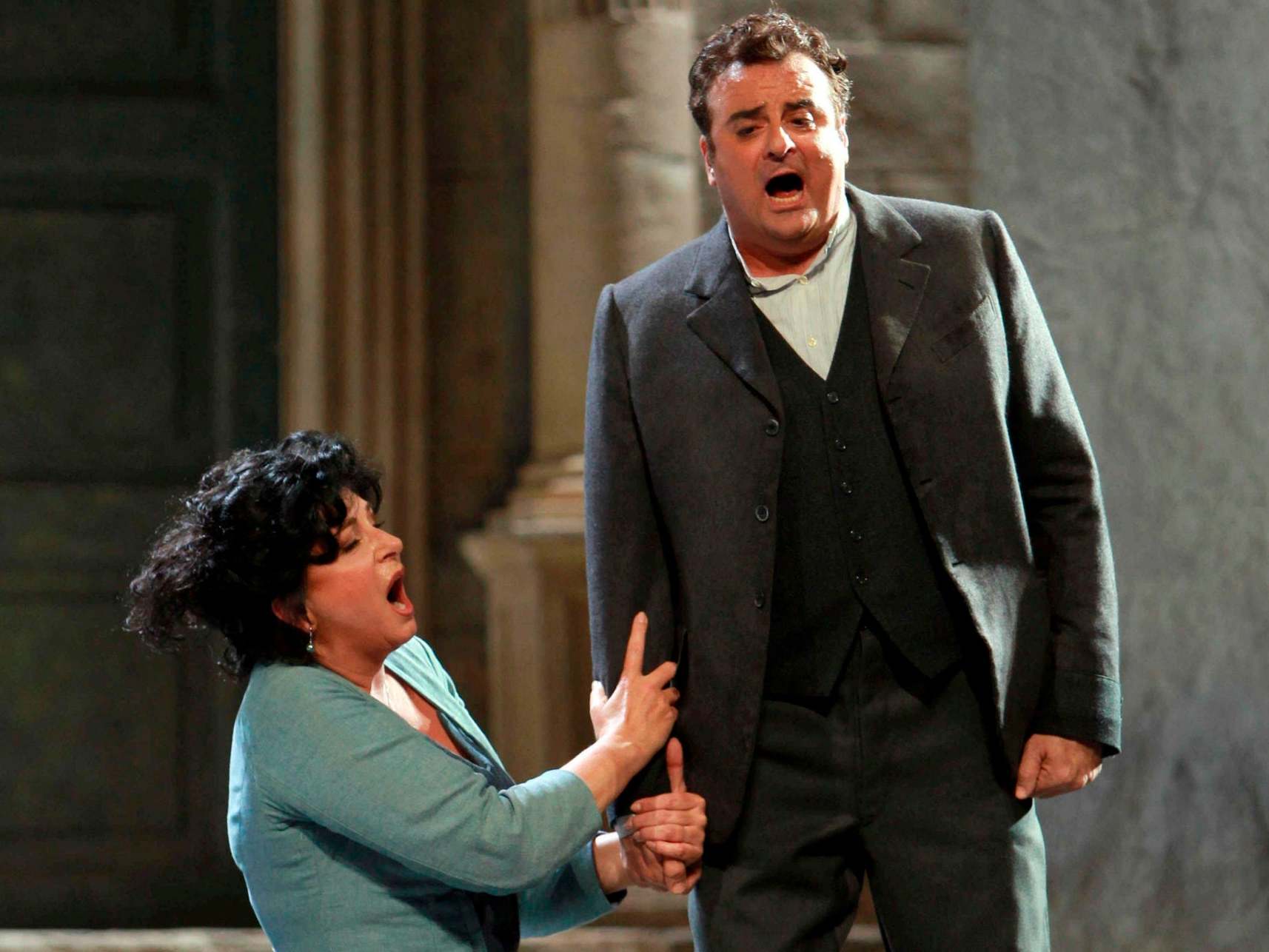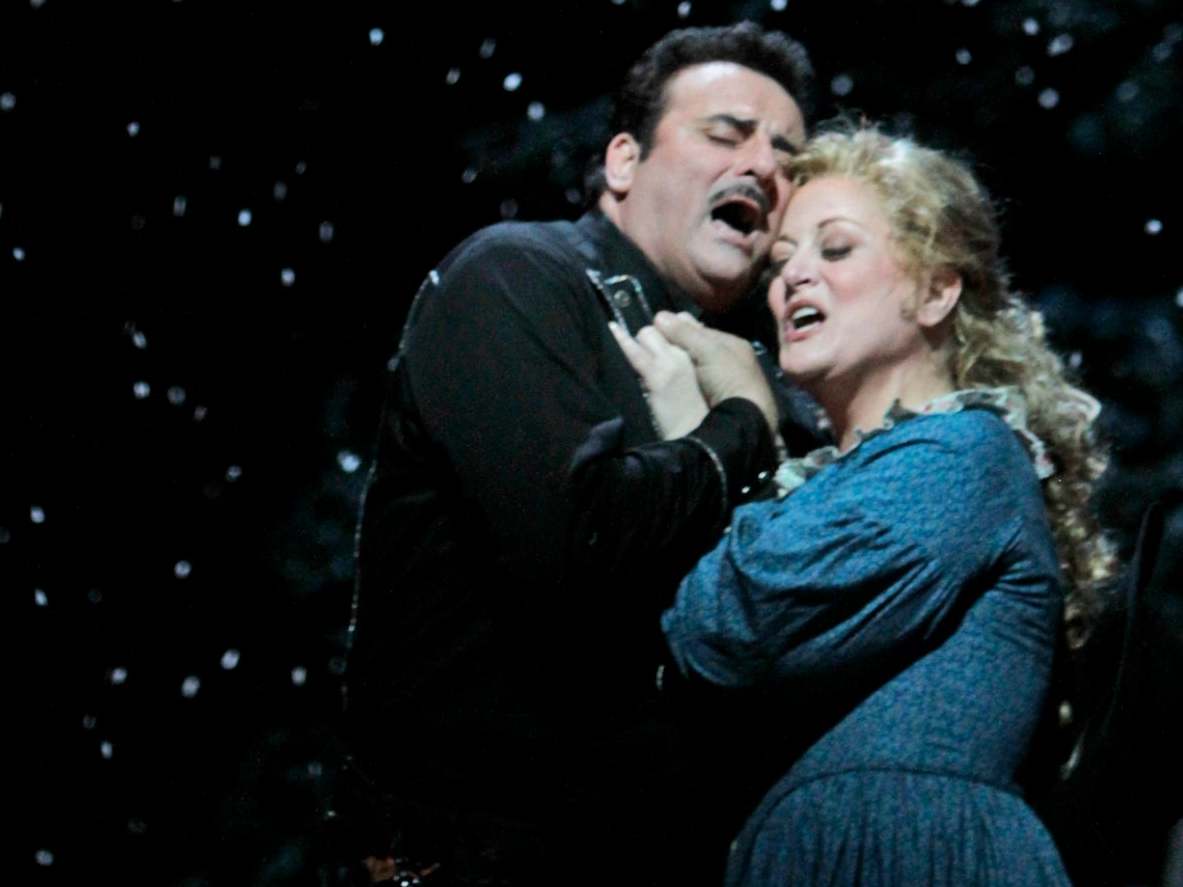Marcello Giordani: Italian tenor who became a powerhouse mainstay of the Met
One of the leading lights of opera, he was renowned for his versatility and stamina

Marcello Giordani was an Italian tenor who gave his first performances for customers at his father’s petrol station in Sicily and rose to international fame on the opera stage, where he received ovations for the ringing power of his voice.
Giordani, who has died of a heart attack at the age of 56, had loved the opera since his youth, when he recalled weeping in the back rows of a modest local theatre as the music washed over him, but he attended no conservatory and did not study music seriously until after he had begun a safe, dependable career at a bank.
Fuelled by what he described as his sense of “rebellion and ambition”, he quit his job at 19 and set out for Milan to train as an opera singer. He credited his success in part to his father, a former prison guard who also loved the opera and provided financial and moral support.
After rising through European and American opera houses, Giordani became a mainstay of the Metropolitan Opera in New York. He debuted with the company in 1993 as the besotted bumpkin Nemorino in Donizetti’s L’Elisir d’Amore in a concert staging of the opera in Brooklyn’s Prospect Park, and made his last performance at the Met in 2016 as the troubadour Manrico in Verdi’s Il Trovatore. The 240 performances in between – as well as his appearances opposite sopranos including Kiri Te Kanawa and Renee Fleming and in houses including La Scala, the Royal Opera House in Covent Garden and the Teatro Colon in Buenos Aires – established him as a premier tenor of his generation.
Giordani lacked the popular name recognition of the Three Tenors – Luciano Pavarotti, Placido Domingo and Jose Carreras – and his closer contemporaries Roberto Alagna and Rolando Villazon. But in an art form in which passions run as high in the audience as they do onstage, he thrilled opera-goers with his high notes and ardent acting.
He was best known for his command of bel canto operas, the later works of the Italian composers Verdi and Puccini, and French operas including Massenet’s Manon and Bizet’s Carmen. (He ventured into the Russian repertoire as Lensky in Tchaikovsky’s Eugene Onegin, a role he performed at the Met in 2001 and 2002.)
The Met twice gave Giordani the honour of opening a new season at the house: first in 2006, when he sang the part of Pinkerton opposite Chilean soprano Cristina Gallardo-Domas in Puccini’s Madama Butterfly; and again the next year when he was Edgardo to Natalie Dessay’s Lucia in Donizetti’s Lucia di Lammermoor.
He was also known for his stamina. When other top tenors cancelled performances, whether for ill health, due to personal conflict or in a temperamental outburst, opera companies called on Giordani to step in – ensuring not only that the show would go on but that it would feature a star. He once agreed to appear at the Met in Verdi’s Rigoletto with eight hours’ notice. And in 2008 he appeared in a regularly scheduled matinee performance of Berlioz’s La Damnation de Faust, then returned that evening to fill in for a sick tenor in Madama Butterfly.

Giordani was born Marcello Guagliardo in 1963, in Augusta, eastern Sicily. He later took the stage name Giordani because Guagliardo proved difficult for non-Italian speakers to pronounce.
He scored his first musical coup in 1986, when he appeared at the Spoleto festival in Italy as the Duke in Rigoletto. He later sang at La Scala and then at regional opera houses across the US, where he said he received an education in the dramatic elements of opera.
“I was lucky to start in [the US],” he said. “Theatrically I am self-taught. The Italians are not indulgent, as Americans are. They don’t have the patience to teach young singers how to move. They think you should learn in school.”
But he felt a strong bond with his homeland, and reflected on how it influenced his path towards opera. “Sicily is a blessed land,” he said. “First, because of its geographic position in the Mediterranean. Second, for its history and all the different peoples who have settled there: Arabs, Greeks, Normans, the Swedes. That has made us different from others. We exaggerate, we overdo. We love Greek tragedy. We cry, we fight, sometimes for nothing. We don’t have the middle of the line. We’re on the edge.”
He is survived by his wife, Wilma Ahrens, and two children.
Marcello Giordani, opera singer, born 25 January 1963, died 5 October 2019
© Washington Post
Join our commenting forum
Join thought-provoking conversations, follow other Independent readers and see their replies
Comments
Bookmark popover
Removed from bookmarks